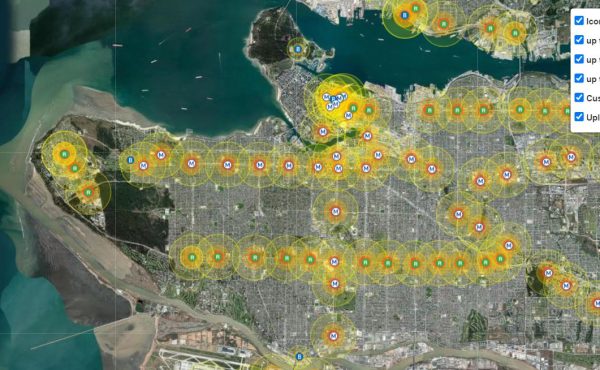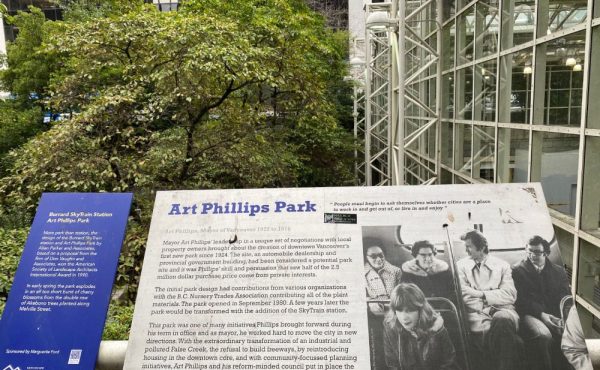To change the future of housing in Vancouver and keep young workers and families in the city, Vancouver City Council has approved its new Housing Vancouver strategy and three-year action plan today, a bold response to address Vancouver’s housing crisis.
“Our newly approved Housing Vancouver strategy is a bold, forward-thinking plan that was directly informed by what we heard from local residents: we need urgent action now to ramp up not just the supply of housing, but the right kind of supply,” said Mayor Gregor Robertson. “Housing Vancouver builds on measures the City is already taking that are the first of their kind in Canada—the empty homes tax, temporary modular housing for our most vulnerable residents, and regulating short-term rentals—and includes strategies that go after real estate speculation, offer more protection for renters and will transform single-family neighbourhoods across the city. This comprehensive approach will help us maintain Vancouver’s diversity and vibrancy, and create more affordable housing options for young people, growing families, seniors and our most vulnerable residents.”
“The current state of housing in Vancouver is jeopardizing our city’s diversity, sense of community, and longevity. Our new strategy is ambitions, and will see many changes across the city,” said Gil Kelley, General Manager, Planning, Urban Design, and Sustainability. “With an overall goal to provide residents with housing they need and can afford, Housing Vancouver is a culmination of fourteen months’ of research and engagement with local, nation and international housing experts as well as over 10,000 residents of Vancouver. Our three-year action plan ensures that action continues quickly to guarantee a future for the people who live and work in Vancouver.”
With over 120 actions, the three-year action plan directs how the City will move forward to create more livable and affordable housing for Vancouver residents. The City will address the housing crisis by undertaking the following 10 priority actions:
- Advance the transformation of low-density neighbourhoods by increasing rental, social and ground-oriented housing across the city and increasing housing near future transit hubs and arterials, beginning with the Broadway Corridor, Nanaimo Station, 29th Station and Olympic Village Station. A Laneway Innovation Challenge will advance innovative design thinking on integrating new infill housing in low-density neighbourhoods. A review of city-wide regulations to implement zoning changes will permit multiple homes on a single lot, and add townhouses and low-rise apartments in areas that have public amenities but have seen a decrease in families and children.
- Address speculation and stabilize land value with a new policy to reduce overinflated values, and by working with senior levels of government to develop tax and financial regulations that limit speculative investments in housing. Proposals include creating rental-only zoning, a speculation and flipping tax, increased provincial Property Transfer Tax on luxury properties, and closing loopholes around capital gains taxes.
- Increase rental protections and affordability for the over 50 per cent of households that rent by ensuring all existing rental homes remain affordable after redevelopment; preserving the existing 90,000 rental homes in Vancouver by lowering the trigger for one-for-one replacement of rentals from six units to three units so that more affordable homes are available to Vancouver renters. A new Moderate Income Rental Housing Pilot Program will incentivize developers through density bonusing to build 100 per cent rental buildings where at least 20 per cent of the units are permanently affordable for households on low-incomes earning between $30,000 and $80,000 annually. The City also has a new target of 2,000 new co-op homes over the next decade.
- Complete a comprehensive review of City processes for housing, rezoning and development to: simplify, streamline and clarify City approaches, remove discrepancies between bylaws, reduce processing times by adding more staff, and speed up the rezoning and Community Amenity Contributions (CAC) process by nearly 80 per cent for market rental development applications.
- Support diverse ways of living throughout Vancouver by permitting non-traditional housing such as collective housing by mending the Zoning and Development By-law to permit six or more unrelated roommates in single-family areas.
- Provide housing for homeless residents by requesting funding to build 1,200 units of temporary modular supportive housing on sites throughout Vancouver over the next two years. 600 units are already slated to be developed in the next 12 months through financing from the Provincial government, as part of our efforts to solve homelessness.
- Develop a new 10 Year Affordable Housing Delivery and Financial Plan to support development of 12,000 social, supportive, and co-op homes, which is already in progress.
- Improve livability of SRO Hotels by replacing 50 per cent with new self-contained social housing in the next ten years, and establish a SRO revitalization fund to renovate 10 privately-owned buildings.
- Launch the new Social Purpose Real Estate Incentive Program with help from the Image Property team to support non-profits and co-ops who own their land and buildings to redevelop and expand affordable housing.
- Build five new Aboriginal housing developments through partnerships with Aboriginal agencies, and create a 10 Year Aboriginal Housing strategy in support of the City’s ongoing efforts for reconciliation.
These actions will help maintain a diverse, vibrant and connected community of residents in Vancouver and ensure the city’s housing stock accommodates a broad range of incomes, occupations, and households at all life stages with a goal of 72,000 new homes to be delivered over the next ten years:
- 50 per cent of new homes will serve households earning less than $80,000
- 29,000 will be for families, representing 40 per cent of all new homes
- Two thirds of all new housing will be for renters
- 12,000 will be social, supportive and non-profit co-operative homes and of those 4,100 will have supports
- 20,000 will be secure long-term market rental homes
- 4,000 new laneway homes will provide ground-oriented homes for couples and families
- More ownership options will be available for first time homebuyers, families, and downsizing seniors
To ensure residents benefit from the changes to housing in Vancouver as soon as possible, implementation of many of these actions are already underway, with the remaining actions to launch between 2018 and 2021. As new actions are implemented, the City will hold further consultation to gain feedback from the public. To track progress of achieving the Housing Vancouver goals, staff will provide City Council with annual progress reports.
“After a year-long engagement process, CityHive is very pleased to see that the Vancouver Housing strategy is taking action to prioritize young people who are being deeply impacted by the housing affordability crisis. Tying targets for new homes to income brackets, prioritizing and preserving rental stock, and increasing the variety of housing options such as rental, social, coops, laneways, among others will have a significant impact in improving the affordability and livability of Vancouver for the next decade,” said Tessica Truong & Veronika Bylicki, Co-Founders and Co-Directors, CityHive and Metro Vancouver Code Red Organizers for Generation Squeeze
Visit vancouver.ca/housing to learn more.
***
Background: Creating the Housing Vancouver Strategy
In October 2016, the City held its first international housing conference to explore ideas and solutions and to address the housing affordability goals in Vancouver.
On March 28, 2017, City staff presented City Council with the proposed new housing priorities. The full council report Vancouver Housing and Homelessness Strategy Reset – Housing Vancouver Emerging Directions can be found here: http://council.vancouver.ca/20170328/documents/rr1.pdf
In May and June of 2017, the City engaged with over 10,000 residents to gain feedback on the proposed priorities for the new Housing Vancouver strategy. A summary of the Public Consultation can be found here: http://vancouver.ca/files/cov/housing-vancouver-july-2017-engagement-summary.pdf
In July 2017, the City provided Council with an update on Housing Vancouver strategy including preliminary ten year targets of 72,000 new homes across the city in ten years. The presentation can be found here: http://council.vancouver.ca/20170725/documents/regurr1presentation.pdf





